Events
Oct 28 - Nov 18, 2020
HKU-SZU Seminar Series
Date: Wednesday, 28 October 2020 - Wednesday, 18 November 2020
Time: 1:00 p.m. - 3:00 p.m.
Link of Zoom: https://hku.zoom.us/j/98716623442?pwd=WE4wM2M1RjUvVEtUS0U3cGo1RGRJZz09
Meeting ID: 987 1662 3442
Password: 648230
|
Date |
Time |
Title of Talk |
Speaker |
|---|---|---|---|
|
28 Oct (Wed) |
1:00pm |
Mechanism of MicroRNA Biogenesis |
Dr. Chul KWON |
|
28 Oct (Wed) |
2:00pm |
Role of long noncoding RNAs in MYC-driven cancer |
Dr. Taewan KIM |
|
4 Nov (Wed) |
1:00pm |
Integrated chemical biology approach to study cellular signaling and to develop new drug modalities |
Dr. Clive CHUNG |
|
4 Nov (Wed) |
2:00pm |
Role of DNA repair factors in suppression of lymphoma |
Dr. Xiangyu LIU |
|
11 Nov (Wed) |
1:00pm |
Human β-tubulin isotypes regulate microtubule protofilament number and stability |
Dr. Jeff TI |
|
11 Nov (Wed) |
2:00pm |
Targeting BRCA1 deficient breast cancers |
Prof. Xinhai PEI |
|
18 Nov (Wed) |
1:00pm |
Type I interferons affect the metabolic fitness of CD8+T cells in systemic lupus erythematosus patients |
Dr. Heidi LING |
|
18 Nov (Wed) |
2:00pm |
The role of wnt signaling in the Tfh differentiation and Treg function |
Prof. Shaojun XING |
Dr. Chul KWON (Assistant Professor, School of Biomedical Sciences, The University of Hong Kong)
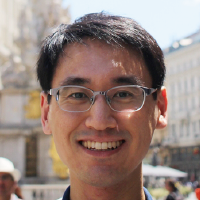
Title: Mechanism of MicroRNA Biogenesis
Biography: Dr. Chul Kwon obtained his BSc and PhD from Seoul National University and did postdoc training at Institute for Basic Science. Under the supervision of Narry Kim (RNA biologist) and Jae-Sung Woo (structural biologist), Chul elucidated the molecular mechanism of primary microRNA processing. He is interested in small RNA, RNA-binding proteins, and genome engineering tools.
Abstract: MicroRNA maturation is initiated by RNase III DROSHA that cleaves the stem-loop of primary microRNA. DROSHA functions together with its cofactor DGCR8 in a heterotrimeric complex known as Microprocessor. I have been investigating the mechanism by which Microprocessor selects the cleavage site with single-nucleotide precision, which is crucial for the specificity and functionality of microRNAs. In this talk, I will explain the first crystal structure of DROSHA in complex with a short fragment of DGCR8, which elucidates the molecular architecture of Microprocessor (Cell 2016, 164:81). Next, I will show the mechanism of DROSHA cleavage site selection which was revealed by structural modeling and high-throughput sequencing (Molecular Cell 2019, 73:505). Also, I will briefly explain the identification of the third component of Microprocessor, ERH (Nucleic Acids Research 2020, accepted). These findings provide a basis for the understanding of microRNA biogenesis and the rational design of short hairpin RNAs (shRNAs) or microRNA mimics, which can be applied for RNA-based diagnosis and therapeutics.
Dr. Taewan KIM (Associate Professor, International Cancer Center, Shenzhen University)
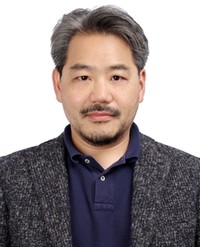
Title: Role of long noncoding RNAs in MYC-driven cancer.
Biography: Dr. Taewan Kim is an associate professor at Shenzhen University. He has worked on noncoding RNAs since his PhD study at the Ohio State University. He has worked on microRNAs and long noncoding RNAs in cancer. He did his postdoctoral training at Vanderbilt University Medical Center and UT MD Anderson Cancer Center. Before joining Shenzhen University, Taewan was a research scientist at the Ohio State University Comprehensive Cancer Center. At the Ohio State University Comprehensive Cancer Center, he had worked on various noncoding RNAs including microRNAs, long noncoding RNAs and tRNA-derived small noncoding RNAs. Currently, he continues his cancer research centered on noncoding RNAs working with multiple research groups in the US, Italy, Hungary, Korea, and Spain.
Abstract: The oncogene MYC is a transcription factor that is overexpressed in most cancer types. In particular, MYC downstream genes and pathways are dysregulated in nearly 100% of colorectal cancer (CRC). Nevertheless, the clinical application of MYC is arduous due to the broad functional spectrum of MYC in various vital cellular and pathological pathways. To discover the cancer-specific targets in MYC-driven cancer, noncoding RNAs occupying 98% of total human transcripts were explored. Indeed, MYC-regulated long noncoding RNAs (lncRNAs) in CRC are crucial regulators of MYC-driven oncogenic pathways, supporting the potential of MYC-regulated lncRNAs in CRC treatment.
Dr. Clive CHUNG (Assistant Professor, School of Biomedical Sciences, The University of Hong Kong)
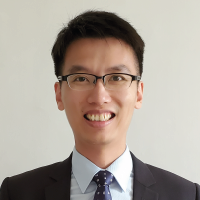
Title: Integrated chemical biology approach to study cellular signaling and to develop new drug modalities
Biography: Dr. Clive Chung received first-class honors BSc degree in chemistry and PhD from Prof. Vivian Wing-Wah Yam at The University of Hong Kong (HKU) in 2008 and 2013 respectively. Then, he did his postdoctoral training with Prof Chi-Ming Che at HKU on inorganic medicines and drug delivery. In 2016, he received Croucher Postdoctoral Fellowship and moved to UC Berkeley, working with Prof Christopher J. Chang on molecular imaging to unravel roles of reactive oxygen species (ROS) and redox-active copper ion in biology. In 2018, he worked with Prof. Daniel K. Nomura in Novartis-Berkeley Center for Proteomics and Chemistry Technologies, using chemoproteomics and mass spectrometry (MS) to discover new activity-based compounds that can modulate autophagy and mTORC1 signaling. In May 2020, Dr Chung joined the School of Biomedical Sciences and Department of Pathology, HKU, as an Assistant Professor. His current research is highly interdisciplinary, with the focus on applying new chemical tools and technology to investigate cellular signaling as well as to develop new drug modalities through medicinal chemistry coupled with advance MS platforms.
Abstract: Chemical biology is an interdisciplinary research area which applies functional chemical tools and technology to study and manipulate biological systems. This is an emerging area and has demonstrated great impacts on biomedical studies and drug research and development. In this seminar, I will first illustrate the powerful application of activity-based protein profiling (ABPP) for discovering drug lead compounds to target novel proteins for cancer therapy. In the second part, I will introduce new chemistry for developing chemical tools and chemoproteomic platforms to study cellular signaling with unstable and dynamic modifications, and this is not feasible by most of the current biological/biochemical experiments. Through our unique platforms, molecular mechanism of these signaling events and the identity of proteins involved can be identified, which are potential targets for promoting health and developing new therapy.
Dr. Xiangyu LIU (Senior Researcher, Department of Biochemistry and Molecular Biology, International Cancer Center, Shenzhen University Health Science Center, Shenzhen University)
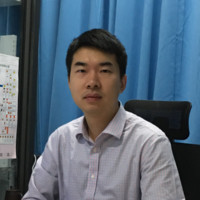
Title: Role of DNA repair factors in suppression of lymphoma
Biography: Dr. Xiangyu Liu long-term goal is to use molecular and genetic approach to understand the relationships among different DNA repair pathways and how they coordinate to maintain genome stability and prevent human diseases such as ageing and cancer. In general, he is interested in how cells respond to different DNA damaging stress (such as nuclease mediated cutting, topoisomerase inhibitors, irradiation or radiomimetic drugs, etc) and how different repair pathways determine the final fate of the cells. In particular, in the next few years, he expects to continue his study firstly on 53BP1 and CtIP and their functional interactions with other DNA damage response proteins to explore the mechanism of DNA repair in the face of different kinds of DNA damage. In the long run, he plans to extend his research looking for new and novel factors from human patients that play vital roles in DNA repair and tumorigenesis. Website: https://med.szu.edu.cn/Item/2395.aspx
Abstract: Lymphoma is the third most common cancer in children and adolescents younger than 20 years old. A common genetic change in lymphoma is recurrent chromosomal translocations involving the antigen receptor gene loci and cellular oncogenes. Most of those chromosomal translocations arise from mis-repair of programmed DNA double strand break (DSBs) during lymphocyte development. In our study, we are focusing on factors that prevent chromosome translocation and subsequent lymphoma development. Specifically, by using mouse model, we discovered that 53BP1, which plays roles in both DNA repair and checkpoint, prevents lymphoma development in XLF (a DNA repair factor) deficient background. Moreover, we have further defined the function of 53BP1 in the pathway of transformation of B cells and development of lymphoma. It will shed some light on the mechanisms that result in similar translocations in human lymphomas.
Dr. Jeff TI (Assistant Professor, School of Biomedical Sciences, The University of Hong Kong)
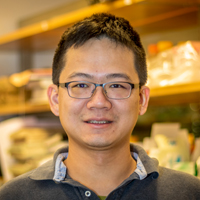
Title: Human β-tubulin isotypes regulate microtubule protofilament number and stability
Biography: Dr. Jeff Shih-Chieh Ti joined the School of Biomedical Sciences as Assistant Professor in September 2019. Before joining HKU, Dr. Ti received his Ph.D. from Yale University and then worked as a postdoctoral fellow at the Rockefeller University. His current research focuses on dissecting the mechanism by which cells organize microtubules into complex arrays that play critical roles in cell division, organelle transportation, and cell migration. In particular, employing protein biochemistry, proteomics, optical tweezers, single-molecule fluorescence microscopy, and cryo-electron microscopy, Dr. Ti’s group will examine the molecular basis that confers the unique and essential functions of the diverse human tubulin isotypes.
Abstract: Microtubules are dynamic polymers of α/β-tubulin heterodimers with diverse and essential roles in eukaryotic cells. The human genome encodes multiple α- and β-tubulin isotypes expressed in different cell types to achieve diversity in microtubule organization and function. However, it is unclear if tubulin isotypes directly control fundamental microtubule properties. We develop a strategy to generate isotypically pure recombinant human tubulin heterodimers. TIRF microscopy-based in vitro reconstitution and cryo-EM structural analysis reveal that β-tubulin isotypes can control microtubule structure and stability. Our ability to reconstitute microtubules with physiologically relevant tubulin isotype compositions will open a new avenue for dissecting the diverse tubulin isotypes’ cellular functions.
Prof. Xinhai PEI (Professor, Department of Anatomy, Histology & Developmental Biology, School of Basic Medical Sciences, Shenzhen University Health Science Center, Shenzhen) University)
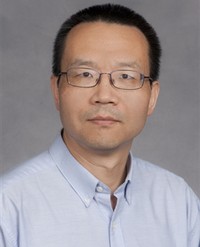
Title: Targeting BRCA1 deficient breast cancers
Biography: Prof. Pei has a broad background in both clinical and basic cancer research. As a clinician, he devoted himself to clinical cancer research including chemotherapy and metastasis for 11 years before switching to basic cancer research. During his training as postdoctoral fellow / research assistant professor in Prof. Yue Xiong’s lab at UNC-CH, Prof. Pei became interested in mouse genetic approaches to investigate the molecular and cellular bases of tumor suppression. To this end, Prof. Pei generated 5 strains of knockout mice and characterized more than 30 different mouse mutants for various cell cycle inhibitors and tumor suppressors, and demonstrated their functions in the control of stem/progenitor cells and tumorigenesis of multiple tissues, including the seminal work that uncovered p18INK4c as a downstream target of GATA3 that restrains mammary luminal progenitor proliferation and tumorigenesis. Prof. Pei was tenure-track assistant and associate professor at the University of Miami before moving to China as full professor at Shenzhen University in Oct 2018. His research interests include 1) how DNA damage regulates cell fate; 2) how LncRNA controls cancer development and progression; and 3) how cell cycle inhibitors and transcription factors control cochlea hair cells in hearing loss and tubular cells in polycystic kidney disease.
Abstract: Basal-like breast cancers (BLBCs) are a leading cause of cancer death due to their capacity to metastasize and lack of effective therapies. More than half of BLBCs have a dysfunctional BRCA1. Although most BRCA1-deficient cancers respond to DNA-damaging agents, resistance and tumor recurrence remain a challenge to survival outcomes for BLBC patients. Additional therapies targeting the pathways aberrantly activated by BRCA1 deficiency are urgently needed. Most BRCA1-deficient BLBCs carry a dysfunctional INK4-RB pathway. Thus, we created genetically engineered mice with Brca1 loss and deletion of p16INK4A, or separately p18INK4C, to model the deficient INK4-RB signaling in human BLBCs. By using these mutant mice and human BRCA1 deficient and proficient breast cancer tissues and cells, we identified a few signaling pathways aberrantly activated by BRCA1 deficiency. We tested if there exists a druggable target in BRCA1 deficient breast cancers.
Dr. Heidi LING (Assistant Professor, School of Biomedical Sciences, The University of Hong Kong)
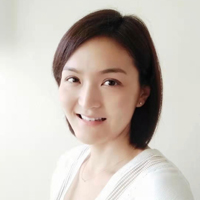
Title: Type I interferons affect the metabolic fitness of CD8+T cells in systemic lupus erythematosus patients
Biography: Dr. Guang Sheng Ling is an Assistant Professor in the School of Biomedical Sciences, The University of Hong Kong. She obtained her bachelor and doctoral degrees at HKU. She then joined Imperial College London for postdoctoral training. Her current research focuses on the metabolic reprogramming of exhausted CD8+T cells in chronic inflammatory diseases.
Abstract: The majority of Systemic Lupus Erythematosus (SLE) patients have increased expression of type I IFN-stimulated genes (ISG). Mitochondrial abnormalities have been reported in T cells from SLE patients, but the contribution of type I IFN exposure to these changes has not been explored. We conducted transcriptomic analysis of CD4+ and CD8+T cells from lupus nephritis patients and healthy controls, and revealed downregulation of mitochondria-derived genes and mitochondria-associated metabolic pathways in patients with high ISG expression compared to those with no ISG expression. CD8+T cells, but not CD4+T cells, from IFN-high patients had enlarged and more active mitochondria. However, these CD8+T cells displayed lower spare respiratory capacity and increased cell death upon re-challenge suggesting decreased metabolic fitness. These mitochondrial abnormalities could be phenocopied by exposing CD8+T cells from healthy controls to type I IFN and TCR stimulation, demonstrating the importance of these two stimuli in driving these metabolic changes. In summary, our data demonstrate that chronic type I IFN exposure contributes to lupus pathogenesis by promoting CD8+T cell dysfunction via metabolic rewiring.
Prof. Shaojun XING (Professor, Department of Pathogenic Biology, School of Basic Medical Sciences, Shenzhen University Health Science Center, Shenzhen University)
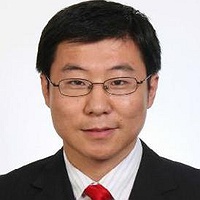
Title: The role of wnt signaling in the Tfh differentiation and Treg function
Biography: Prof. Shaojun Xing’s research interests focus on the immune response to infection. He has been studied the function and development of T cells using mouse model and human immune cells. Based on the previous work, he will further study the regulation of immune response to infection and underlying molecular mechanism: 1). Regulatory Follicular helper T cells response to infection. 2). Epigenetic modification of multiple immune cells.
Abstract: Follicular helper T cells (Tfh cells) are specialized effector CD4+ T cells that help B cells develop germinal centers(GCs) and memory. However, the transcription factors that regulate the differentiation of Tfh remain incompletely understood. In collaboration with Shane Crotty group, we reported that selective loss of TCF1 and LEF1 resulted in Tfh cell defects. Mechanistically, TCF1/LEF1 established the responsiveness of naïve CD4+ T cells to Tfh cell signals and they promoted early Tfh differentiation via regulating multiple interacting mechanisms upstream of Bcl6 during Tfh differentiation.
Tcf1 and Lef1 have versatile functions in regulating T cell development and differentiation, but intrinsic requirements for these factors in regulatory T (T reg) cells remain to be unequivocally defined. Specific ablation of Tcf1 and Lef1 in Treg cells resulted in spontaneous multi-organ autoimmunity. Tcf1/Lef1-deficient T regs showed reduced protection against experimentally induced colitis. Our data collectively indicate that Tcf1 and Lef1 are critical for sustaining T reg suppressive functions and preventing loss of self-tolerance.
ALL ARE WELCOME
Should you have any enquiries, please feel free to contact Miss River Wong at 3917 9216.

